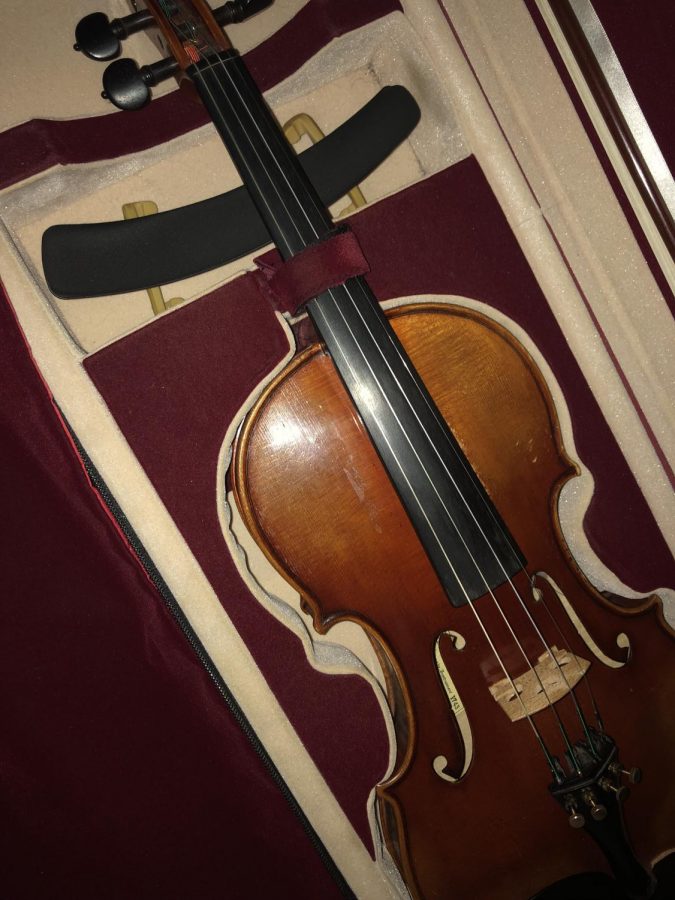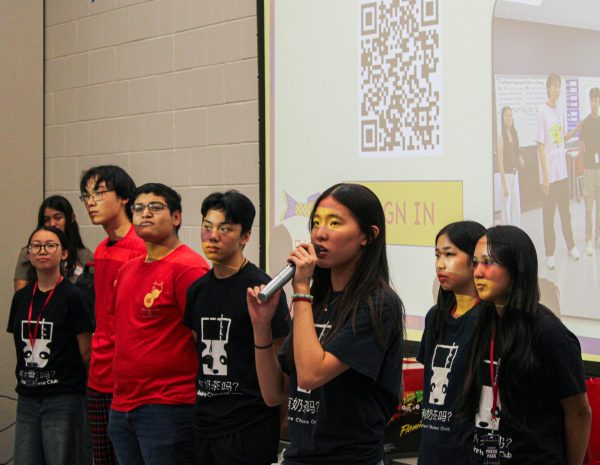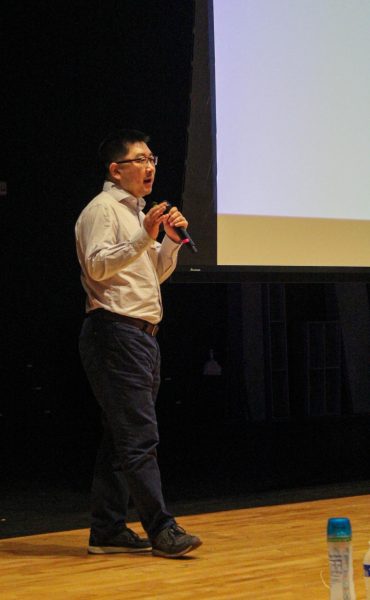Orchestra Members Participate in the Audition for All-State Orchestra
Playing a musical instrument is no easy task. Competing with other musicians across the state is even more difficult. The Texas Music Educators Association hosted an annual audition for their All-State Orchestra on Oct. 26 and 27. Several orchestra members who auditioned provided their thoughts and experiences.
Sophomore cellist Matthew Zhang described the audition process.
“First, there’s an elimination round called All-Area,” Zhang said. “If you make it past that, you get called back to record the next day. There are two recording rounds that you must go through.”
Senior violinist Jesse Ji delved more in depth on the recording rounds.
“Everything is recorded at once,” Ji said. “The judging panel hears half the songs in the first recording, and if they don’t think it’s good enough immediately cut you. If you do make it past, they listen to the next half, and then either place you or eliminate you.”
The amount of people that auditioned in this division alone reached around 60 people, with over 200 people across the state entered as well. The competition was fierce, and many musicians do not make it in during their first year.
Sophomore violinist Arianna Zhao recounted her first experience.
“I went and auditioned last year, but I didn’t even make it past the elimination round,” Zhao said. “I was really close too: I was only two spots away from the cut.”
Similarly, Zhang was fairly close to being accepted in his first year.
“Last year I auditioned and made it past the elimination round,” Zhang said. “The next day I went back and made it past the first recording round, but not the second. It was really disappointing to hear.”
Practice for this audition consumed over a 100 hours’ worth of practice. Zhang described his practice schedule.
“I started practicing when the audition pieces were released, back in June,” said Zhang. “In the summer I was able to practice about two and a half hours a day. But with the school year, I can only average about one and a half a day.”
So what was the point of all of this practice and effort for many to not even be accepted into the All-State orchestra? Zhao provided her perspective on the challenge and reward.
“Making it into All-State brings a payoff for your dedication,” Zhao said. “It brings validation that you are an advanced musician and proves to yourself and others that you have a higher set of skills than everyone else.”
Ji echoed this idea with his own reasons for entering.
“I made it in three times, but never into symphony, the highest orchestra,” Ji said. “If I make it in this year, then I will finally be able to know that I am a highly capable.”
The nearly four months of practicing brought an ultimate payoff of recognition of higher ability to those fortunate enough to be accepted by the judges.
Right after the All-State auditions, the Symphony Orchestra held their annual Hauntcert on Oct. 30. Sophomore James Li described the experience.
“Lanier’s and Pin Oak’s orchestras both came on Tuesday,” Li said. “It was a lot of fun getting to play alongside these younger kids, it feels like having a positive impact on these aspiring musicians.”
The middle school musicians sit alongside a high school partner and perform several songs before listening to the high school orchestra play by themselves. Li described the reactions to the high school performance.
“The other directors told Ms. Reynosa (the Bellaire orchestra director) that their kids were very impressed,” Li said. “I think that’s great that we were able to show them what they could achieve if they continue to practice.”
These orchestra members competed in the grueling All-State audition, but also found time to relax and enjoy an in-school concert, just for fun, creating a stable balance between the two.
Your donation will support the student journalists of Bellaire High School. Your contribution will allow us to purchase equipment and cover our annual website hosting costs.







